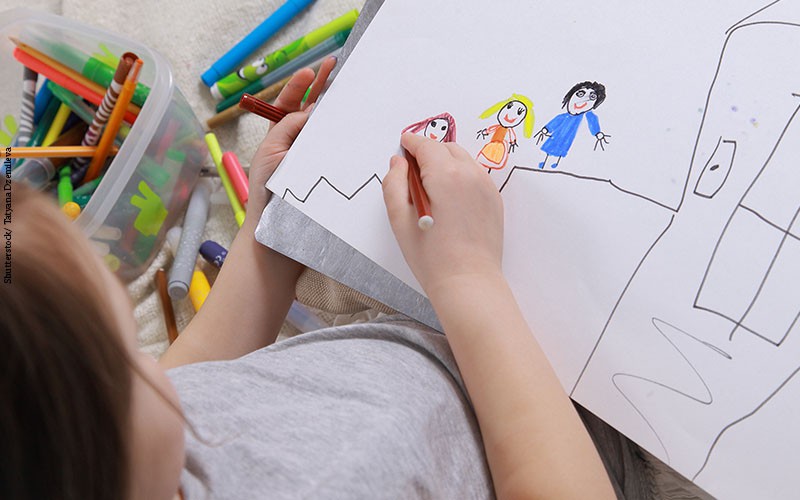The feminist Adrienne Rich once wrote “Until we understand the assumptions in which we are drenched, we cannot know ourselves.” If you replace assumptions with traditions, then one might see that Family Constellations therapy comes from a similar idea. Bassant El Menshawy, a practitioner and facilitator of this therapy, says the core idea is that we inherit all sorts of things from our parents and their families, not just money or houses or looks but emotions too; the emotional baggage of our ancestors handed down to us. Bassant tells me that the therapy works because “It basically reveals the hidden bonds, the hidden dynamics that lie within a family. And these keep us entangled, in bonds with our relatives. This therapy helps to offer a broader perspective to change our behaviour.”
“The core is always about life and death.”
Family Constellations Therapy was created by a man named Bert Hellinger who worked for 16 years in the 1950s-60s as a Roman Catholic missionary with the Zulu. While he was there he was particularly struck by the connection of the Zulu to their ancestors, from this and Hellinger’s training in psychoanalysis on his return to Germany, having left the priesthood, Family Constellations was born. It has attracted criticism over the years for its roots in psychoanalysis, which has long fallen out of fashion, and its lack of exact science. Yet this is exactly the thing that Bassant believes sets it apart, “The good thing about Family Constellations, which separates it from other psychotherapies, is most psychotherapies have parameters and they want you to fit into them. Family Constellations is individual, each person can fit in his own way. It is not about normal, normal is a matter of perception. I will not have parameters, that you need to do this, or feel this, no. It is a matter of the soul. On a soul level, on a spiritual level you feel good.” “It’s not mental. The more the mind comes into it the more it stops the energy taking over, the more it stops you looking at the other side of it.”
The problems may vary but according to Bassant, “The core is always about life and death.” For example, for someone practicing this therapy in China she says a recurring theme in sessions might be abortion, because of the one child law. “If you think about it huge numbers in one generation started to have abortions, or they have a child already born who they have to get rid of. And nobody talks about it but this is something that affects our soul. Affects all of the Chinese people in a way because a huge number of people have just disappeared from the system who had a right to belong.” Often in the interview however, though Bassant may say the core is life and death, it turns out to be belonging. She tells the story of a child with Down Syndrome who feels the pain of a relative from a previous generation who was sent away for having the same condition. She uses that phrase again, she says the earlier child with Down Syndrome “has a right to belong.”
“Even a perpetrator has a good intention.”
The point of this therapy however is not just to explore the skeletons in our families’ closets but “to look at humans in another way. Even a perpetrator has a good intention.” I am given an example of this, a woman who felt her father was cold and distant, even that he hated her; “In our session, she positioned her father with his arms outstretched just behind his back. He was saying, ‘Stay away, don’t come close’. He was protecting her from something very bad, I don’t know what- we need to protect family secrets too. Something that happened in his family that could harm her. She saw another perspective. That he didn’t hate her but was trying to protect her from something that had happened in his family. So, she stopped. She stopped trying to come close to him and he also noticed that she was different and became calmer. Then they could maintain a slight connection. It was something, something better than nothing.”
This story tells us that this therapy does not promise revolutionary change, or even immediate change. Perhaps the simple power that Family Constellation’s clients talk about is best summed up by the last thing Bassant tells me, “Some people come to sessions and they just look at the ground. But if you are not here to look at how someone in your family suffered and that you are now carrying this suffering, then what is the point? You are not acknowledging them. You need to move on, you need to leave what belongs to them with them and move on with gratitude. Accept that they did the best they could.” So, she asks “Are you ready to look?”

